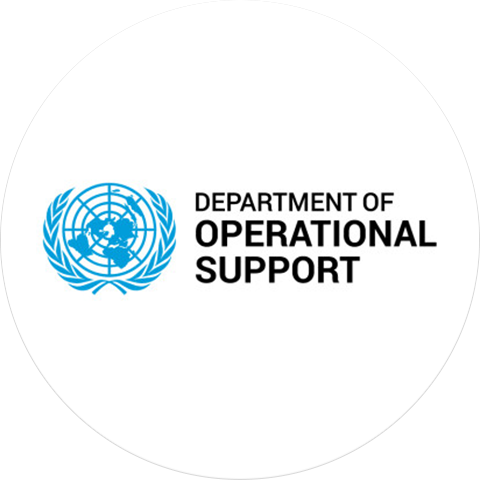
Case Story
Transitioning from face-to-face to e-learning

Department of Operational Support (DOS) - UN Division of Healthcare Management and Occupational Safety and Health (DHMOSH)
By offering operational and advisory services, as well as transactional suport, the Department of Operational Support (DOS) plays a crucial backstopping function for the entire UN Secretariat. A structure encompassing nearly 100 entities around the world.
Within the DOS, the Division of Healthcare Management and Occupational Safety and Health (DHMOSH) is mandated with providing healthcare management, clinical governance, occupational safety, counselling, public health and clinical services. It achieves this through effective planning, coordination, monitoring, and by overseeing the medical care of staff in the field. By optimizing the health of UN staff, DHMOSH's overarching role is to maintain the organization’s effectiveness.
To promote safety and consistency in the provision of medical care, DHMOSH trains Hospital Commanders from Troop and Police Contributing Countries (T/PCC) on UN Health Care Quality and Patient Safety (UNHQPS) Standards before their deployment to UN missions. Completing this training is mandatory for new hospital commanders.
The training is designed to teach hospital commanders about UNHQPS Standards by utilizing the UNHQPS Manuals and Implementation Guides. Once deployed hospital commanders are expected to implement HQPS standards in the hospitals under their command.
The COVID-19 pandemic compelled DHMOSH to switch from previous successful conventional face-to-face training courses to an all-online format. To do that, the course was reorganized using a variety of on-line teaching modalities, while maintaining the critical objectives.
The broad goals of the online course included improving healthcare quality across UN field hospitals through compliance with HQPS standards; fostering a non-punitive healthcare environment; supporting a culture of continuous improvement; and ultimately having better consistency in healthcare outcomes.
The learning solutions would need to help participants:
- Provide risk reduction methodology to reduce preventable harm;
- Provide consistency in processes and systems in all Peacekeeping hospitals with surgical capacity, and later in all UN medical facilities;
- Meet expectations of all mission personnel for trustworthy, consistent, and dependable care;
- Enable the collection and measurement of clinical outcomes for quality improvement; and
- Create the ability to measure patient and staff satisfaction.
All commanding officers and staff members deployed to UN field hospitals with Level 1+, 2, and 3 medical facilities.
UNSSC worked with DHMOSH to convert the face-to-face training and adapt the course training manual (UN Healthcare Quality and Patient Safety Manual) into a dynamic e-learning platform. The course can either be self-study or combined with live virtual sessions.
The e-learning component has four modules. Each module offers video-based presentations featuring interactive knowledge checks and discussion forums. The modules are complemented by a Tracer Methodology virtual practice activity. This is an online simulator of a patient tracer – the methodology that is used to conduct hospital assessments.
To further support participants in remote areas with undependable access to the internet, support resources including manuals, forms, and other documents were included as part of the learning solution.
The course was strengthened through an online Virtual Face-to-Face (VF2F) component that gave participants the chance to engage in real time with DHMOSH staff.
The pilot training was very well-received by the group of Hospital Commanders taking part in the first edition at the end of 2020 and in 2021. For the sustainability of UN HQPS in UN field facilities, DHMOSH will now offer the course twice a year and make it mandatory for health practitioners who are being deployed to field hospitals.
DHMOSH has built on the success of this course to form the basis for a follow-up training, along with a certification course for future HQPS Standards Assessors.